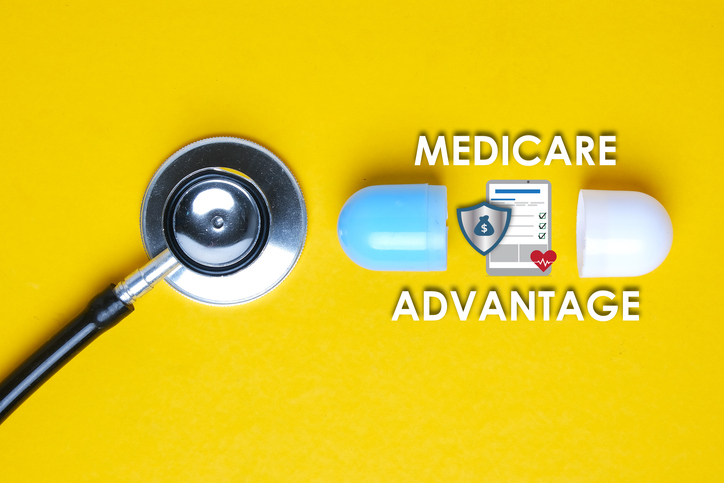ADA urges reforms to Medicare Advantage dental benefits
Cites limited access, transparency

As Congress examines the future of the Medicare Advantage program, ADA leaders are calling for targeted reforms to ensure that seniors enrolled in Medicare Advantage plans receive meaningful access to dental care. In a July 22 letter to congressional subcommittees overseeing the joint hearing on Medicare Advantage, the ADA outlined several concerns and recommendations focused on transparency, competition and provider participation in Medicare Advantage.
“As [Medicare Advantage] has grown rapidly over the past two decades, millions of seniors now look to [Medicare Advantage] plans for dental coverage,” wrote ADA President Brett Kessler, D.D.S., and Interim Executive Director Elizabeth Shapiro, D.D.S, J.D., pointing out that 97% of enrollees are in plans that advertise some form of dental benefit.
However, according to Drs. Kessler and Shapiro, these benefits often do not improve oral health outcomes. A recent study cited in the letter found that Medicare Advantage enrollees with dental coverage were no more likely to have had a dental visit in the past year than those without coverage. This study, authored by researchers with the ADA Health Policy Institute, found that restrictive characteristics of Medicare Advantage dental plans are associated with greater unmet dental need and financial barriers to care.
The ADA identified limited competition among dental carriers as a key issue. In 90% of counties, one or two insurers account for more than half of enrollment, which the ADA said undermines value-based competition and restricts access.
“The ADA urges Congress and CMS to examine the effects of market concentration within [Medicare Advantage] dental offerings and to assess whether beneficiaries in highly concentrated counties are receiving comparable value and access to care,” the letter said. “We further recommend CMS incorporate dental-specific competition metrics, such as [Herfindahl-Hirschman Index] scores, enrollment dominance and network breadth, into its oversight and transparency efforts. Without action, the promise of [Medicare Advantage] as a competitive, consumer-driven alternative will continue to fall short for oral health.”
To improve consumer understanding, the ADA called for uniform disclosures in marketing materials, including clearly labeled information on covered services, cost-sharing, annual maximums and network policies. Clear and comparable benefit information is essential, the letter said, adding that 52% of enrollees choose their plan based on the perceived value of its dental coverage.
The ADA also urged CMS to strengthen network transparency, remove administrative hurdles that discourage dentist participation and include dental benefits in the Medicare Advantage medical loss ratio calculation to ensure premium dollars are spent on care. Additionally, the ADA recommended updating the administrative transactions under the Health Insurance Portability and Accountability Act to streamline claims adjudication and improve practice efficiency.
“Ultimately, [Medicare Advantage] should not create a second-class or overly complicated dental system for seniors,” Drs. Kessler and Shapiro wrote. “We believe that by increasing competition, improving the clarity and comparability of dental benefit offerings, enhancing transparency, holding plans accountable and removing barriers to provider participation, [Medicare Advantage] can truly fulfill its potential to deliver quality oral health outcomes for beneficiaries while ensuring value for their premiums and for taxpayers.”
There were several dental mentions during the hearing, including when David Basel, M.D., vice president of clinical quality and population health officer at Avera Health, said in a witness statement that dental plans are some of the supplemental benefits that have proven most impactful in rural areas.
“I can say that probably some of the dental and vision plans are what you see most broadly, and they make it feel a little bit more like commercial insurance that people are used to. And certainly, dental health is tied to medical health. And so that would certainly be one of those that I would point to [being most impactful],” Dr. Basel said.
When asked about whether Medicare Advantage plans add significant value through supplemental benefits, Matthew Fiedler, Ph.D., said in a witness statement that Medicare Advantage plans offer much more limited dental services than many people expect dental plans to cover. He said the additional benefits “aren’t commensurate with the additional money we are paying those plans” and that there are “much better ways to deliver those additional benefits to Medicare beneficiaries.”
Additionally, Sachin Jain, M.D., said in a witness statement that traditional Medicare contains “important gaps.”
“It doesn’t offer dental, vision and hearing benefits. It focuses little on prevention and offers scant coordination of services, and importantly as costs rise, many older adults struggle to access the care that they need,” Dr. Jain said. “The traditional program is out of range for lower and middle income older adults. Medicare Advantage helps fill those gaps. It brings care coordination, supplemental benefits and financial protections that traditional Medicare simply doesn’t offer.”
For more information, visit ADA.org/Medicare.



